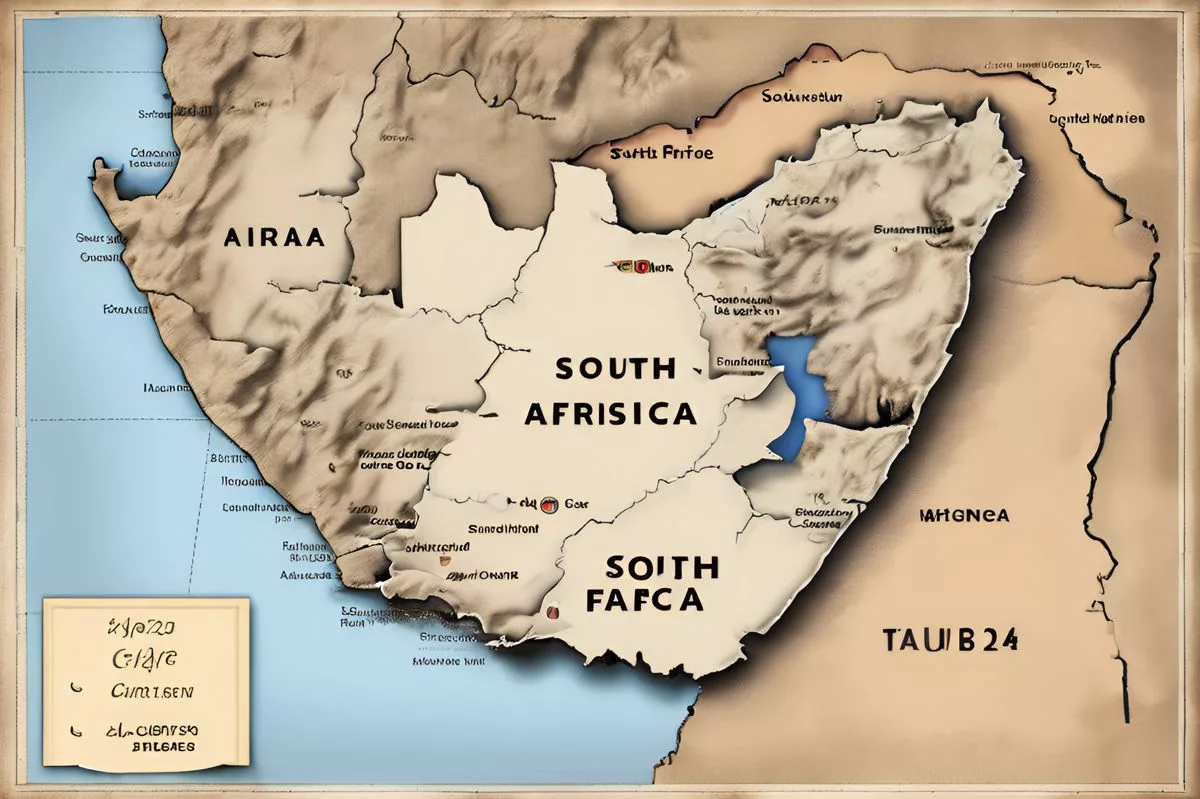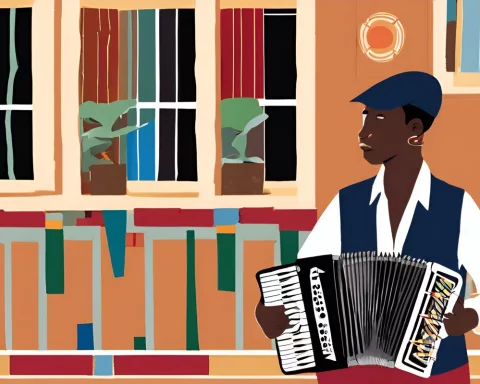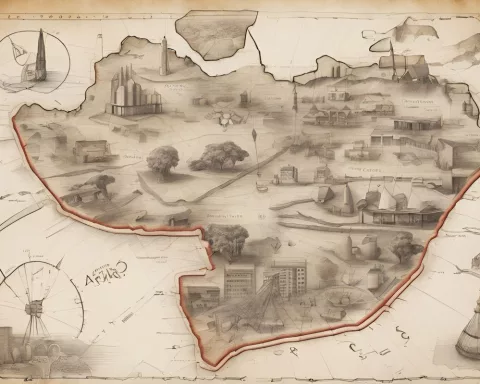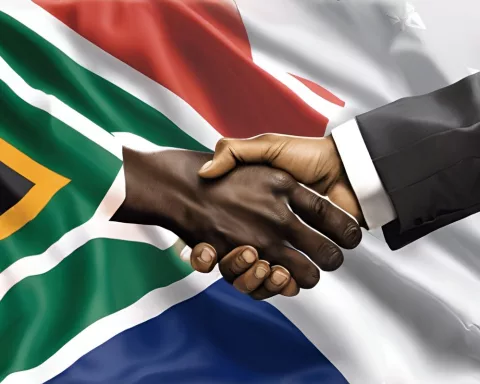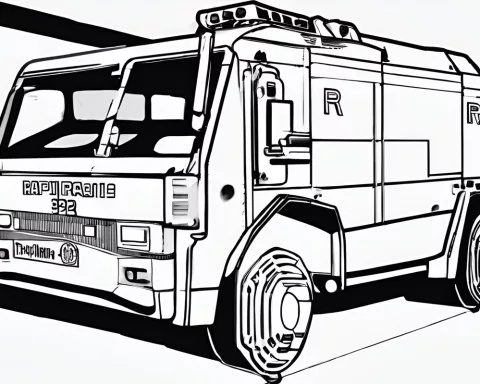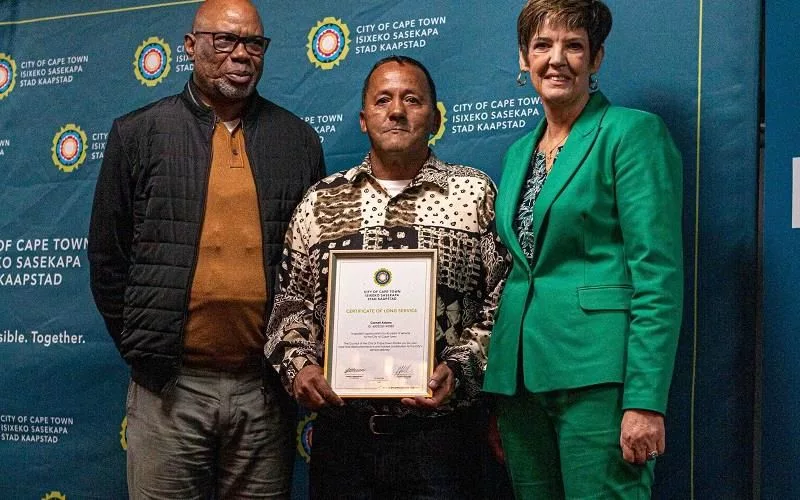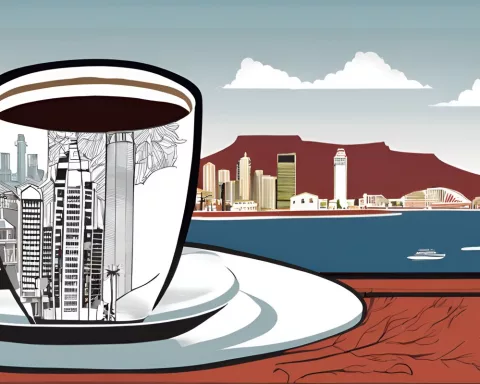Tensions are rising in South Africa following a vigilante incident involving a group advocating for Cape’s autonomy. The ANC is concerned about the racial tension sparked by the incident, which involved the barricading of the R62 road connecting Eastern and Western Cape. The Cape Independence Party denies any racial charges and claims their intention was an expression of their aspiration for independence. The incident is a violation of human rights and the Constitution, urging state bodies to conduct a comprehensive investigation. The incident has highlighted the brewing political discord and racial tensions within South Africa.
Tensions rise in South Africa as a vigilante group advocating for Cape’s autonomy barricades the R62 road connecting Eastern and Western Cape, sparking widespread public fury and highlighting racial tension. ANC considers this event a reminder of South Africa’s tormenting history and insinuates a wider scheme for the province to dissociate from the rest of South Africa. The Cape Independence Party denies any racial charges and claims their intention was an expression of their aspiration for independence. This incident is a violation of human rights and a stark insult to the Constitution, urging state bodies to conduct a comprehensive investigation.
ANC’s Reaction to the Crisis
The African National Congress (ANC), the ruling party of South Africa, has conveyed its severe objection to an alarming event involving a faction advocating for Cape’s autonomy, thereby highlighting the issue of racial tension. The incident, captured in images and videos that spread like wildfire on social media, entailed the R62 road connecting the Eastern and Western Cape being barricaded, and vehicles being searched. The conduct of these self-proclaimed vigilantes has incited widespread public fury, exacerbating an area already scarred by historical rifts.
The ANC interprets this event as a disturbing reminder of South Africa’s tormenting history. The way black motorists were treated is compared to how ‘illegal immigrants’ were treated, destined to be expelled into the Eastern Cape. This evokes an ominous sense of déjà vu, an unwelcome recall of the time during the apartheid era when racial segregation was legal and blacks were involuntarily evicted from their residences.
Political Implications and the Cape Independence
The said event brings to prominence the covert political strategies at play within the Western Cape. The ANC insinuates that this vigilante action is a part of a wider scheme for the province to dissociate from the rest of South Africa. The supposedly planned strategy, advocated by the Democratic Alliance and backed by the Cape Independents through the Powers Bill, aims to establish an enclave solely reserved for the minority.
The idea of Cape’s independence isn’t novel. The Cape Independence Party has been a conspicuous player in the political arena for the past decade. Calls for a definitive split from South Africa, transforming the Western Cape into a distinct country, have been resounding more loudly of late. If this were to happen, the number of provinces in South Africa would decrease to eight.
The Cape Independence Party, the vigilante group involved, has issued a rebuttal claiming that all vehicles entering Cape Town were stopped and checked, irrespective of the driver’s race. Their justification is that their intention was not racially charged but rather an expression of their aspiration for independence.
Violation of Human Rights and the Constitution
ANC’s spokesperson, Mahlengi Bhengu-Motsiri, labelled these actions as a blatant violation of human rights and a stark insult to the Constitution. Characterised as ‘terrible and detestable’, she confirmed such activities as criminal and thus, are subject to legal penalty. The ANC urges all South Africans to maintain tranquillity and let the police, the South African Human Rights Commission, and other state bodies, conduct a comprehensive investigation into these matters.
The event conjures up memories of Orania’s contentious existence, a town solely for whites in the Northern Cape founded in 1991 by Carel Boshoff Snr, an Afrikaner intellectual and apartheid architect Hendrik Verwoerd’s son-in-law. This controversial town, equipped with schools, shops, salons, and other facilities, has been a cause of political distress, with some politicians demanding its status to be reassessed or even eradicated.
The Population Surge of Orania and Future Speculations
Intriguingly, the population of Orania has witnessed a significant surge in recent years. The populace increased by 16.5% in 2021 and has skyrocketed by over 55% since 2018. With the population now reaching close to 2,500 and plans for further expansion in the pipeline, this trend has sparked speculations that the demand for an independent Western Cape might extend beyond mere political rhetoric.
In essence, the incident on the R62 has spotlighted the brewing racial and political discord within South Africa. The path ahead seems filled with obstacles, and it will necessitate a joint effort from all sectors to steer towards a future that respects human rights, equality, and unity, principles deeply rooted in the South African constitution.
What was the vigilante incident that sparked tensions in South Africa?
A group advocating for Cape’s autonomy barricaded the R62 road connecting Eastern and Western Cape, and vehicles were searched. The conduct of these self-proclaimed vigilantes has incited widespread public fury, exacerbating an area already scarred by historical rifts.
What is the ANC’s reaction to the crisis?
The ANC has conveyed its severe objection to the vigilante incident, thereby highlighting the issue of racial tension. The ANC interprets this event as a disturbing reminder of South Africa’s tormenting history.
What are the political implications of the Cape Independence movement?
The ANC insinuates that the vigilante action is a part of a wider scheme for the province to dissociate from the rest of South Africa. The supposedly planned strategy, advocated by the Democratic Alliance and backed by the Cape Independents through the Powers Bill, aims to establish an enclave solely reserved for the minority.
What is the Cape Independence Party’s response to claims of racial charges?
The Cape Independence Party denies any racial charges and claims their intention was an expression of their aspiration for independence. They have issued a rebuttal stating that all vehicles entering Cape Town were stopped and checked, irrespective of the driver’s race.
What did Mahlengi Bhengu-Motsiri say about the incident?
ANC’s spokesperson, Mahlengi Bhengu-Motsiri, labelled these actions as a blatant violation of human rights and a stark insult to the Constitution. The ANC urges all South Africans to maintain tranquillity and let the police, the South African Human Rights Commission, and other state bodies, conduct a comprehensive investigation into these matters.
What is the future for Orania and the Cape Independence movement?
The population of Orania has witnessed a significant surge in recent years, sparking speculations that the demand for an independent Western Cape might extend beyond mere political rhetoric. The incident on the R62 has spotlighted the brewing racial and political discord within South Africa, and it will necessitate a joint effort from all sectors to steer towards a future that respects human rights, equality, and unity, principles deeply rooted in the South African constitution.

